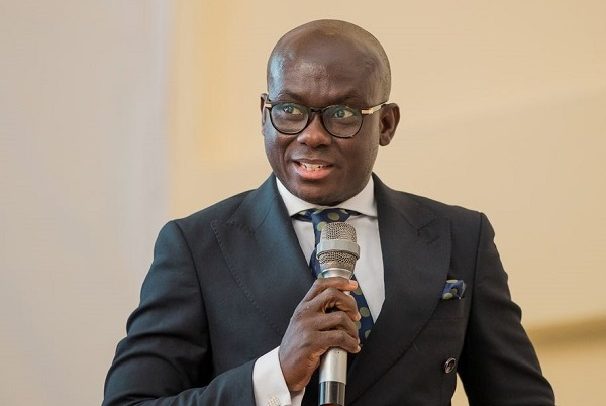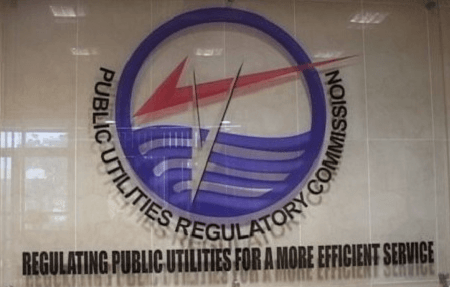
The rent taken from Regina House, one of Ghana’s properties in London, is nowhere near the amount owed in judgment debt for which the property has been placed under receivership, Ghana’s High Commissioner to the United Kingdom (UK), Papa Owusu-Ankomah, has said.
He said this while assuring that Ghana’s properties in London are not threatened following the Trafigura judgment debt. The Regina House is still owned by the government of Ghana.
Reports had indicated that Oil conglomerate Trafigura’s Ghana Power Generation Company (GPGC) has taken over the Regina House in London, following the failure of the government to pay up a $134 million judgment debt.
A Vice President of IAMNI Africa Bright Simon had also written on X that “Because of a decision to pay in bits, outside an agreed payment plan, Ghana had paid nearly a $100m, but the original debt has barely reduced? Yes, that’s the sheer power of compound interest!
“Despite assurances by the High Commissioner in the UK that ongoing negotiations will prevent Trafigura from seizing govt properties in the UK, the country’s biggest property in Central London, Regina House, is already in receivership & all rent payments now go to Trafigura? 3. The Energy Commission Boss advised the govt that terminating the deal will only cost Ghana $18m, which is lower than the ~$100m Ghana was required to pay for power over the 4 year contract term, power that apparently Ghana didn’t need? On what was this analysis based when the investor’s costs hadn’t even been fully analysed?”
In a country where accountability is taken very seriously by the citizens, the latest Trafigura judgment debt instalment would be the subject of a major inquiry.
But how many know that:
1. Because of a decision to pay in bits, outside an agreed payment plan, Ghana had paid…
— Bright Simons (@BBSimons) August 22, 2024
But Mr Owusu-Ankomah said the property is just under receivership until the debt owed to the company is paid.
It has not been sold, neither a notice has been served to sell to defray the debt, he stressed.
“…An application for receivership had been made in respect of some properties belonging to Ghana. Of the properties which is the subject matter of the charge, only one, Regina House is used for commercial purposes.
“The others have been described as diplomatic properties so these properties are not under threat but even with the one which is the subject matter of the receivership, that is Regina House, I know negotiations are ongoing between Ghana and the judgment creditors GPGC to pay, but as of now Regina House is the property of the Government of Ghana, it is at the receivership.”
He further indicated the rent taken on the Regina House does not go to the government of Ghana coffers because the property is under receivership.
“The rent doesn’t go to the Government of Ghana because Regina House is under receivership but Regina House is still owned by the government of Ghana. We are not receiving any money as a result of renting that property because of the judgment debt but the rent that is being paid is nowhere near the amount owed.
“Legally, the property is still the government of Ghana property. What it is is that the charging order gave the management of the property to GPGC solicitors or property appointees until the debt is paid, they cannot even sell the property, they haven’t even applied to sell the property to defray the judgment debt,” he told Joy News on Thursday, August 22.
Following the failure of the Government of Ghana to fully comply with an earlier tribunal decision from the United Kingdom, a District of Columbia Court in the United States has awarded a $111,493,828.82 judgment debt against Ghana in favour of the Ghana Power Generation Company (GPGC).
The court, in granting the Motion for Default Judgment in favour of GPGC, also ordered Ghana to pay mandatory post-judgment interest.
It is recalled that a court in the United Kingdom in 2021 awarded a $140 million arbitral against Ghana for the termination of a power deal with GPGC.
In addition, the government was asked to pay the cost of the arbitration and the legal fees of GPGC, which amounted to over $3 million.
On 23rd June, 2003, Ghana filed an application to set aside the order but the court dismissed the application.
Deputy Attorney-General Alfred Tuah Yeboah said although part payment was made, the state was unable to meet the installment payment plan.
Despite the ruling, Ghana only made partial payments totalling $1,897,692.40, leaving a significant outstanding balance.
Court documents reveal that the U.S. court served Ghana with the petition on January 23, 2024, through Shirley Ayorkor Botchwey, Ghana’s Minister for Foreign Affairs and Regional Integration.
The documents were delivered in Ghana on January 29, 2024, with a signed confirmation of receipt.
The court determined that it had jurisdiction over the case, citing the New York Convention, which the U.S. has ratified, recognizing UK arbitral awards.
The court also noted that Ghana had expressly waived its sovereign immunity and committed to international arbitration under the power purchase agreement.
In his August 6, 2024, memorandum opinion, Chief Judge James E. Boasberg emphasized that the arbitral award between the non-U.S. parties arose out of a commercial relationship, which falls under the New York Convention.
The Convention requires that member states recognize and enforce such awards, regardless of the parties’ citizenship or domicile.
The post Judgment debt: Rent taken so far from Ghana’s Regina House in London is nowhere near amount owed – Papa Owusu-Ankomah first appeared on 3News.
Read Full Story




















Facebook
Twitter
Pinterest
Instagram
Google+
YouTube
LinkedIn
RSS